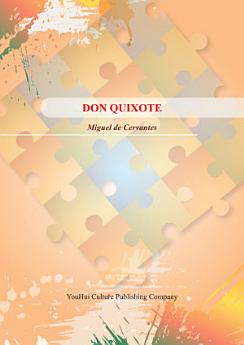DON QUIXOTE
Podrobnosti o e‑knize
by Miguel de Cervantes
Translated by John Ormsby
TRANSLATOR'S PREFACE
I: ABOUT THIS TRANSLATION
IT WAS with considerable reluctance that I abandoned in favour of
the present undertaking what had long been a favourite project: that
of a new edition of Shelton's "Don Quixote," which has now become a
somewhat scarce book. There are some- and I confess myself to be
one- for whom Shelton's racy old version, with all its defects, has
a charm that no modern translation, however skilful or correct,
could possess. Shelton had the inestimable advantage of belonging to
the same generation as Cervantes; "Don Quixote" had to him a
vitality that only a contemporary could feel; it cost him no
dramatic effort to see things as Cervantes saw them; there is no
anachronism in his language; he put the Spanish of Cervantes into
the English of Shakespeare. Shakespeare himself most likely knew the
book; he may have carried it home with him in his saddle-bags to
Stratford on one of his last journeys, and under the mulberry tree
at New Place joined hands with a kindred genius in its pages.
But it was soon made plain to me that to hope for even a moderate
popularity for Shelton was vain. His fine old crusted English would,
no doubt, be relished by a minority, but it would be only by a
minority. His warmest admirers must admit that he is not a
satisfactory representative of Cervantes. His translation of the First
Part was very hastily made and was never revised by him. It has all
the freshness and vigour, but also a full measure of the faults, of
a hasty production. It is often very literal- barbarously literal
frequently- but just as often very loose. He had evidently a good
colloquial knowledge of Spanish, but apparently not much more. It
never seems to occur to him that the same translation of a word will
not suit in every case.
It is often said that we have no satisfactory translation of "Don
Quixote." To those who are familiar with the original, it savours of
truism or platitude to say so, for in truth there can be no thoroughly
satisfactory translation of "Don Quixote" into English or any other
language. It is not that the Spanish idioms are so utterly
unmanageable, or that the untranslatable words, numerous enough no
doubt, are so superabundant, but rather that the sententious terseness
to which the humour of the book owes its flavour is peculiar to
Spanish, and can at best be only distantly imitated in any other
tongue.
The history of our English translations of "Don Quixote" is
instructive. Shelton's, the first in any language, was made,
apparently, about 1608, but not published till 1612. This of course
was only the First Part. It has been asserted that the Second,
published in 1620, is not the work of Shelton, but there is nothing to
support the assertion save the fact that it has less spirit, less of
what we generally understand by "go," about it than the first, which
would be only natural if the first were the work of a young man
writing currente calamo, and the second that of a middle-aged man
writing for a bookseller. On the other hand, it is closer and more
literal, the style is the same, the very same translations, or
mistranslations, occur in it, and it is extremely unlikely that a
new translator would, by suppressing his name, have allowed Shelton to
carry off the credit.







